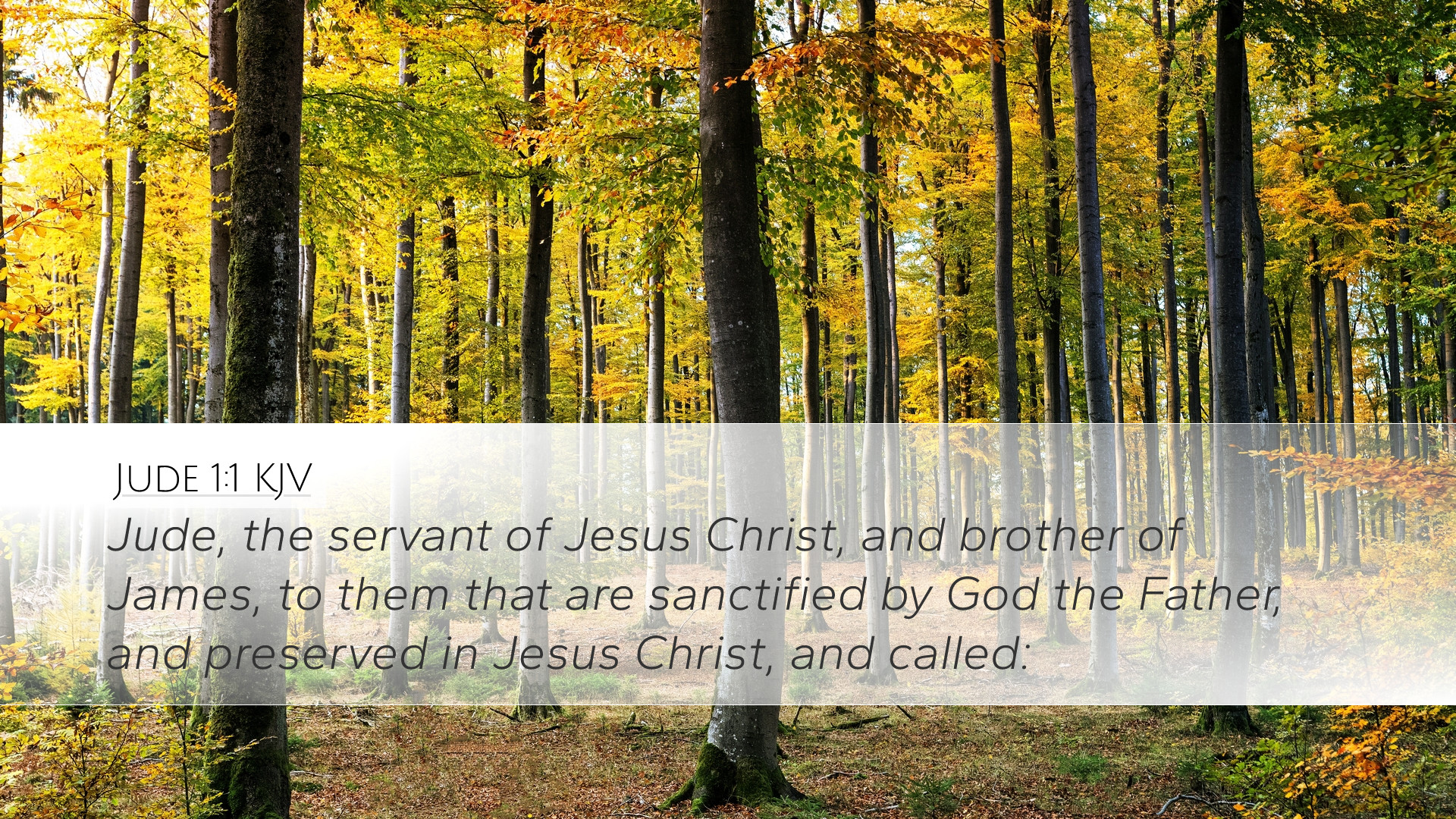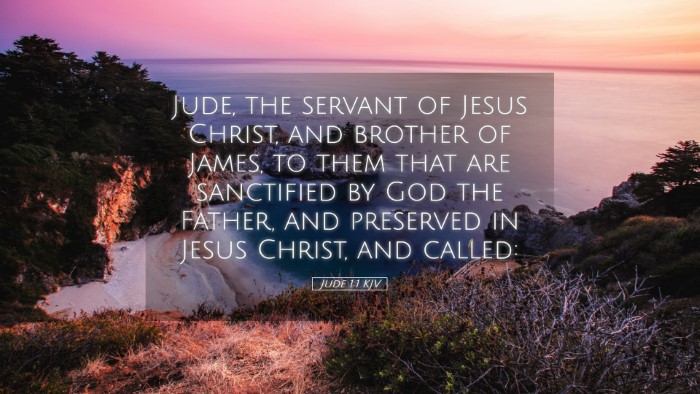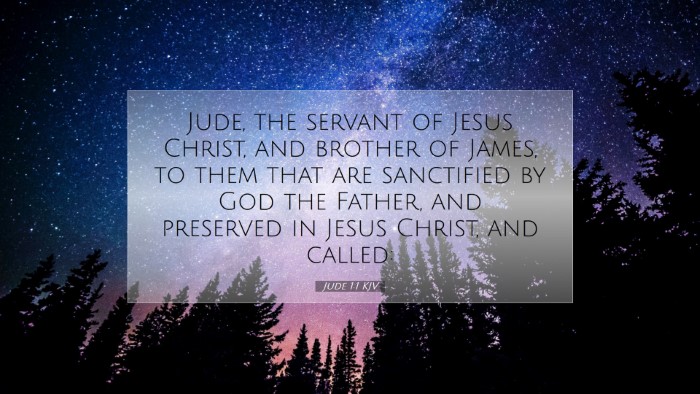Commentary on Jude 1:1
Jude 1:1: "Jude, a servant of Jesus Christ, and brother of James, to them that are sanctified by God the Father, and preserved in Jesus Christ, and called."
Introduction
This epistle, written by Jude, the brother of James (and traditionally interpreted as the brother of Jesus), addresses issues pertinent to the early Church. It succinctly lays out the nature of salvation and the vigilance required against false teachings. This commentary will explore the various elements within Jude 1:1, drawing insights from prominent public domain biblical commentators.
Authorship and Background
Overview of Jude’s Identity:
- Servant of Jesus Christ: Jude identifies himself as a servant (or slave) of Christ, which signifies his humility and submission to the Lord's will.
- Brother of James: This phrase establishes his credibility and connection to authority within the early Christian community, as James was a prominent leader in the Jerusalem church.
Matthew Henry emphasizes that Jude’s acknowledgment as a servant reflects the highest honor, stating, "to be a servant of Christ is a title more honorable than to be a king." This perspective encourages believers to embrace servitude in a world that values power.
Albert Barnes notes the significance of his familial relationship; Jude links himself to the apostolic foundation of the faith. This detail is essential as it establishes continuity and authority among the apostles' teaching.
The Audience
Jude addresses "them that are sanctified by God the Father, and preserved in Jesus Christ, and called". This opening underscores key theological concepts:
- Sanctified: The concept of being set apart for God's purposes is paramount; it denotes both the divine action of God and the recipient's response.
- Preserved: The assurance of preservation in Christ brings comfort to believers, affirming God's protection amidst trials.
- Called: The calling reflects the divine initiative in salvation, conveying a meaning beyond mere invitation, encompassing election and belonging to God.
Adam Clarke elaborates on these terms, clarifying that to be sanctified by God involves the transformative process of being made holy, resulting in a life reflecting God's character. Clarke notes this is fundamental for understanding one’s identity in Christ.
Theological Implications
This verse sets the stage for Jude’s exhortative message. By defining the audience with these characteristics, Jude prepares them to understand the seriousness of his admonition against false teachers. The implications of being sanctified, preserved, and called form the basis for Christian conduct and perseverance.
Matthew Henry challenges readers to recognize the privileges and responsibilities that come with being sanctified and called. The sanctified believer is not merely a passive recipient but actively participates in holiness by living out their faith.
Moreover, the assurance of being preserved in Christ is echoed by Albert Barnes, who believes it tackles fears Christians may face concerning their faith. This is a critical counter to the anxiety caused by the surrounding falsehoods and persecution.
Application for Believers
Jude 1:1 serves as a profound reminder of one's identity in Christ, which is crucial for personal and communal faith integrity:
- Confidence in God’s Choice: Believers are called to rest in the knowledge that their sanctification and preservation stem from God’s sovereign choice.
- Active Faith: The identity as "servant" suggests a vocation of service and devotion, challenging believers to embody Christ-like servant leadership in their communities.
- Vigilance Against Falsehoods: Understanding one’s sanctified status requires vigilance, as the assurance of salvation obliges believers to contend for the faith earnestly (Jude 1:3).
The insights from Adam Clarke encourage believers to embrace their calling actively. With the understanding of being "preserved," they are urged not to succumb to doubts or distractions that lead them away from God’s truth.
Conclusion
Jude 1:1 is a foundational verse that evokes theological depth and practical relevancy for the church today. The truths of sanctification, preservation, and calling underscore the believer's identity formed by God’s grace. The rich character of Jude’s message insists that Christians must embody these principles, advancing both their understanding of salvation and their commitment to living out the faith in loving and sincere community.


